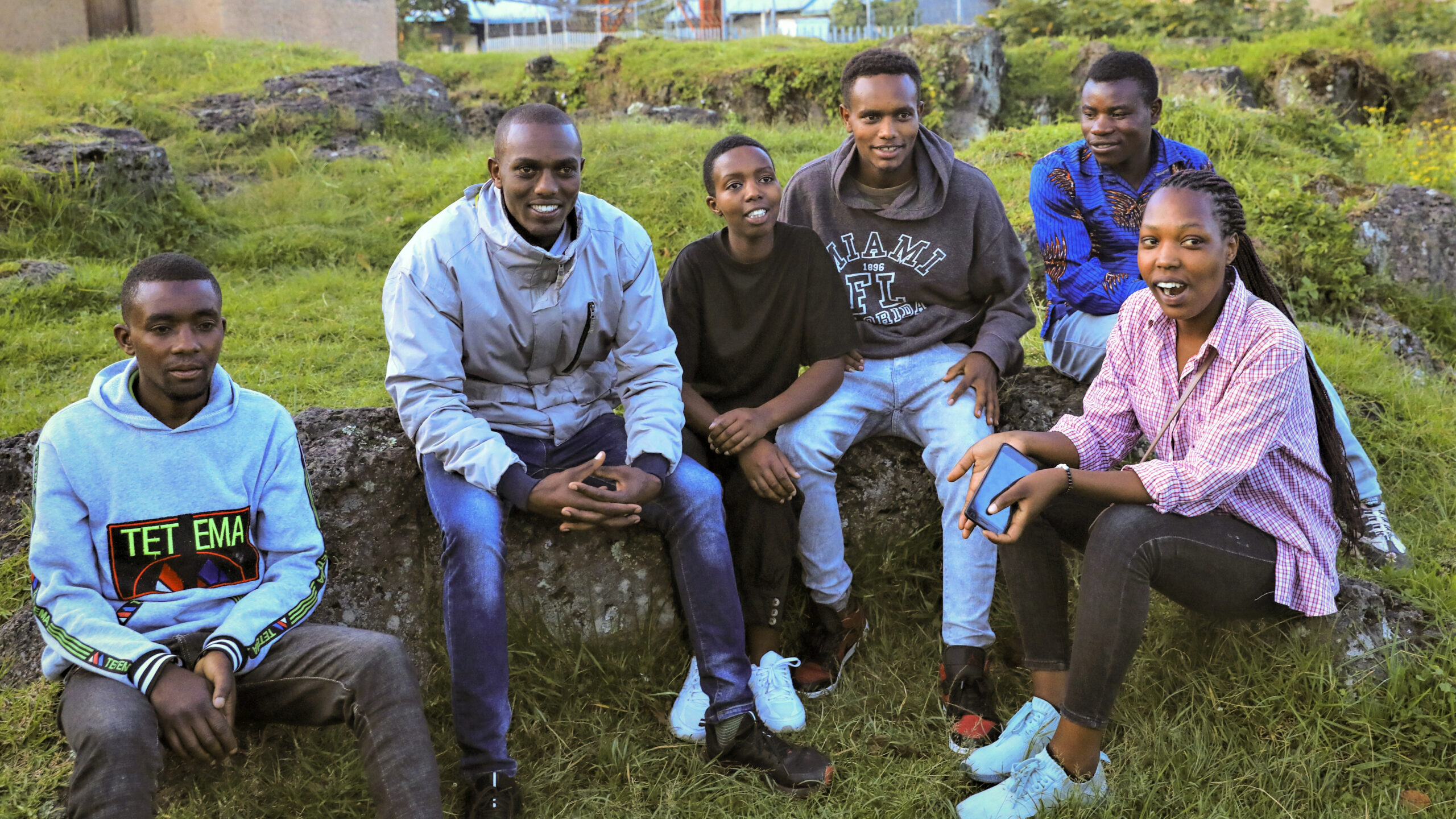Rwanda
Programme vision
To contribute to a more peaceful, resilient, and inclusive Rwandan society through strengthening mechanisms and frameworks that contribute to resilient peace.


Contexte
The aftermath of the 1994 Genocide against the Tutsi left deep psychological wounds on the fabric of Rwandan society. Trauma and post-traumatic stress disorder have become a sizeable public health challenge. These high levels of mental disorders negatively impact social cohesion and make it more difficult for people to trust each other and, subsequently, more challenging to build cohesive communities, sustainable livelihoods, and socio-economic development.
Interpeace’s work in Rwanda offers a holistic approach to building societal resilience by simultaneously addressing mental health, promoting social cohesion, and stimulating sustainable collaborative livelihoods for individuals and communities.
Psychological rehabilitation of prisoners to strengthen social cohesion and reconciliation.
More than 20 000 prisoners who were charged with the most severe crimes of genocide have recently been or are about to be released back into their communities. Their return to society is predicted to increase levels of anxiety and other psychosocial problems, directly impacting social cohesion. Prisoner rehabilitation is a high priority to ensure that the newly released prisoners can assimilate back into society without causing interpersonal and social conflicts.
Since 2020, Interpeace and its local partners, Dignity in Detention, Haguruka, and Prison Fellowship Rwanda, with financial support from the European Union and the Government of Sweden, have created sociotherapy healing spaces in five prisons to provide inmates about to be released with group-based psychosocial support services. The prisoners engage in healing dialogues, conducted in a safe space and conducive environment, that simulate mutual healing, peace of mind and cohesion.
In June 2023, the first group of 182 inmates graduated from healing spaces in four prisons. Previously, more than 50 inmates had graduated during a pilot phase of the programme implemented in Bugesera district, from 2020 to 2022. Those who graduate from healing spaces are facilitated in acquiring hands-on skills that make them better equipped to create livelihood opportunities and earn a living after their release.
Additionally, Interpeace worked with the Rwanda Correctional Service to develop a standardised curriculum for prisoner rehabilitation and reintegration, adopted in July 2022. The curriculum serves as a guide to harmonise the process across all correctional facilities and is being implemented by trained correctional officers.
Personal journey
“I was deeply traumatised due to my difficult life in prison and held on too much anger against my family because they didn’t care about me as I would have wished,” said Edi (pseudonym), a genocide convict detained in Bugesera prison, located in the Eastern Province of Rwanda.
Edi’s case is not isolated, as his colleague Alpan (pseudonym) also experienced deep depression and social isolation for over 27 years. “I felt traumatised and anxious every time I thought about what I did during the genocide and how I disappointed my family and community. I didn’t want to talk to anyone here and had lost interest in everything since I thought my life had no meaning,” said Alpan.
“Sociotherapy healing spaces enabled me to realise that being in jail is not the end of my life. Before, I was desperate and thought my life had no value. But now, I have regained a new sense of a brighter future after my release, which is due in less than two years,” said Alpan, who added, “They have helped me to reconnect with the one I offended. We often talk on the phone, and I feel ready to ask her for forgiveness after my release.”
Like they had for his fellow detainees, sociotherapy healing spaces enabled Edi not only to cope with his distress and reconnect with his family but also to live in peace and harmony with other detainees.